THE BERTHA CHALLENGE
Fellowships for Activists & Investigative Journalists
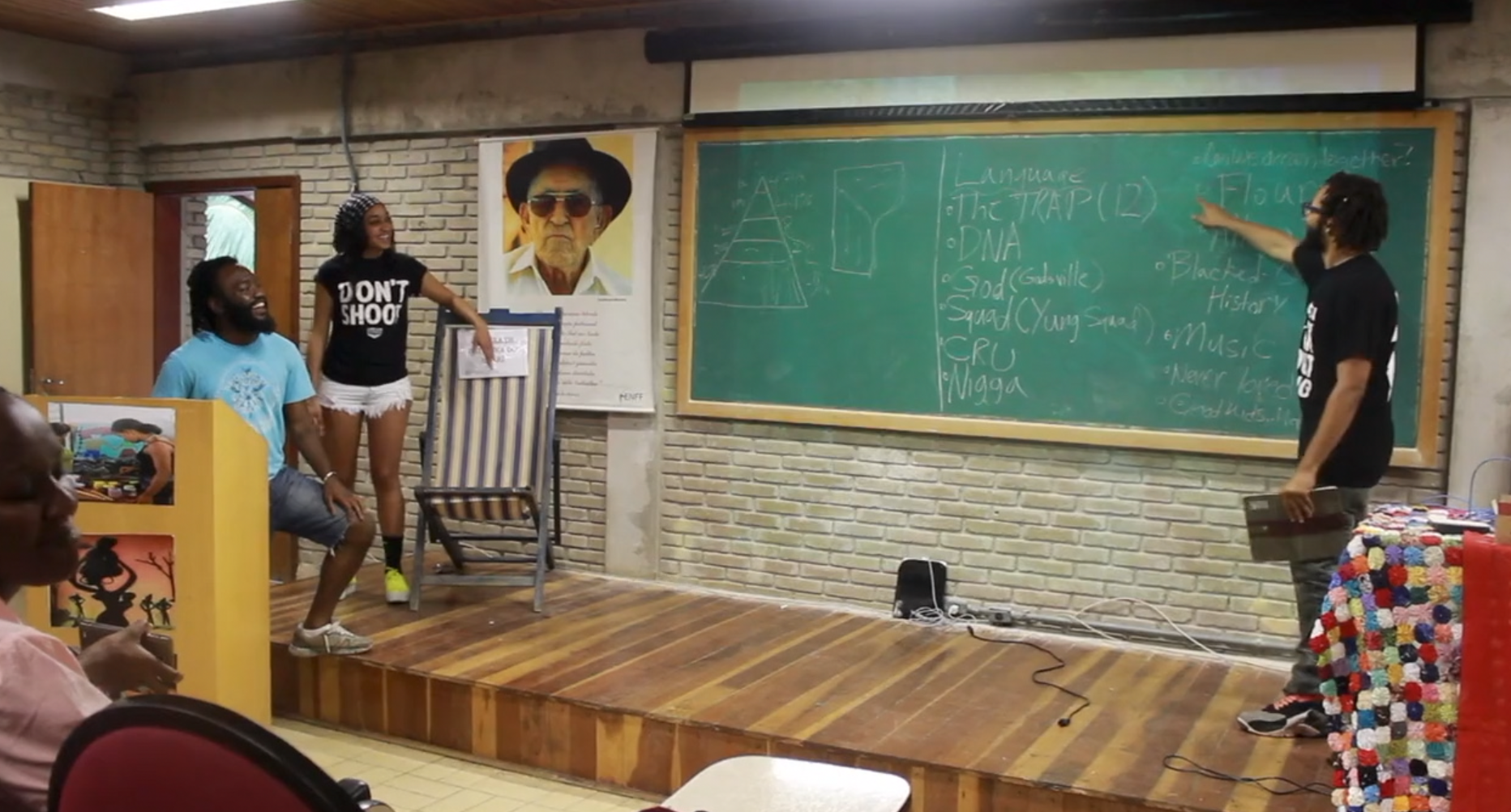
Applications Now Closed
Bertha Foundation believes a more just world can be achieved through innovative collaboration. When activists, storytellers and lawyers work together, big change can happen.
The Bertha Challenge is an opportunity for five activists and five investigative journalists, in five global locations, to spend a year deep-diving into one pressing social justice issue.
Those selected will receive non-residential paid fellowships and a project budget to work independently and together to:
- INVESTIGATE the causes of and solutions to the Bertha Challenge
- AMPLIFY their findings to a wider targeted audience
- CONNECT with diverse stakeholders for information, support and sustainable impact
The inaugural Bertha Challenge will launch in June 2019 with a focus on the right to land and housing, specifically supporting Bertha Fellows to answer the following question:
How is the nexus between property, profit and politics contributing to land and housing injustice, and what can be done to fix this?
Applications open on December 10, 2018 - International Human Rights Day - and close on February 10, 2019. Anyone meeting the selection criteria may apply.
Why Activists and Investigative Journalists?
Activists and investigative journalists are at the forefront of speaking truth to power. Their efforts to expose injustice and amplify diverse voices are increasingly important at a time of rising inequality, conflict, environmental degradation, fiscal austerity, fake news and populism.
This is especially true for land and housing injustice because its effects, causes and solutions are so varied and complex. Every day, millions who are homeless or face eviction ask why this is happening to them and what can be done to prevent it. Activists and investigative journalists play a vital role in providing answers.
Investigative journalism has exposed some of the biggest political and corporate scandals of our time: the Snowden files, the Panama Papers, the Gupta-leaks on state capture in South Africa, the Cambridge Analytica data breach, President Trump's tax dodging, the exposure of a U.S.-supported military coup in Burkina Faso that has left hundreds of civilians dead, the criminal trial against Shell for underpaying the Nigerian government for mining an oil block. These stories and others have reverberated around the world, permanently shifting the way people view politics.
Activists increasingly put themselves on the line to support causes that resist abuses of power. They call on the state to adopt more socially just policies and also work to expose and confront private and corporate power that is increasingly global in scope. They understand conditions on the ground because this is where they live and work. Through their own research, extensive networks, training and media programs they create awareness and build leadership in their immediate communities and beyond. Recent global campaigns against race and gender discrimination, climate change, nationalism, autocracy and corporate lawlessness have been instrumental in advancing justice and democracy.
Investigating and amplifying stories that expose injustice is increasingly achieved by work that cuts across organizations and professions. The scale and complexity of large investigative stories is often too intricate for one journalist or one activist, or even one newsroom or social justice movement to handle alone.
The Bertha Challenge recognizes that investigative journalists and activists have distinct roles. This Challenge offers the opportunity to engage not only with the complexity of the issue of land, ownership and power but also strengthen relationships between activists and investigative journalists grappling with the same topic. Bertha Fellows will be expected to explore new methodologies for working collaboratively and outside their traditional silos while maintaining their integrity and autonomy.
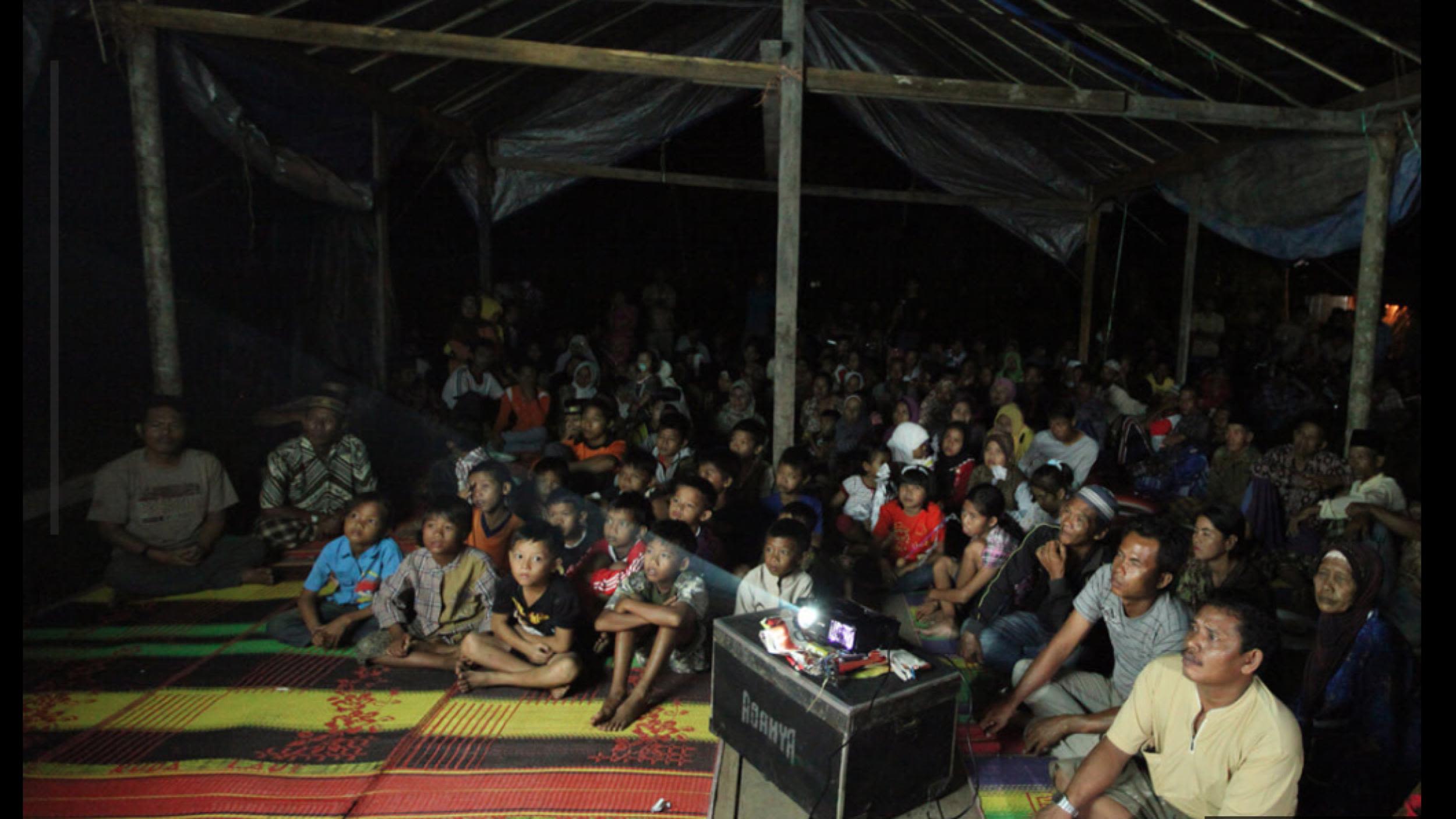
What We Offer
At Bertha we know that many activists and investigative journalists are already investigating, amplifying and connecting. The Bertha Challenge aims to support - not replicate - this work by providing the time to focus exclusively on a project you are passionate about, the spaces in which to connect with a diverse global cohort of Bertha Fellows and partners, and the resources to develop tangible products that expose injustice.
Our fellowships offer:
- Income for each Bertha Fellow for one year, not exceeding USD $60,000 and commensurate with the applicant’s current or equivalent salary at the host organization (see below for more details) - ideally a media outlet for an investigative journalist and an NGO, community organization or social movement for an activist.
- Project funding of up to USD $10,000 for each Bertha Fellow to produce a culminating product that responds to the question posed by the Bertha Challenge. Directed toward your specified target audience, this could be a series of articles, videos, podcasts, games or drama productions, for example. Bertha Fellows working together will have the option to pool their project funding to produce on a larger scale.
- Training through regular virtual seminars, with topics on a range of issues from current debates around land and housing, to methods of investigation, to methods of communicating findings through news media, storytelling, popular education, and more.
- Peer and mentor support in the form of regular virtual check-ins with a project coordinator and a cohort of Bertha Fellows. Like many fellowships, the Bertha Challenge aims to provide space for personal development. However, we also believe that work is most impactful when it is done in collaboration with peers conducting similar work and on a sustained basis.
- Network development through the global cohort of Bertha Fellows and exposure to relevant partners within and beyond the Bertha network, and also through support in strengthening local networks.
- Global convenings of the ten Bertha Fellows and selected guests at the start (June 2019) and end (May 2020) of the Bertha Challenge.
All fellowship applications must include a local host organization willing to act as a host. This could be an organization within which you already work or another appropriate organization willing to host you for the year. Bertha Fellows and host organizations must share a commitment to Bertha Challenge objectives and conditions.

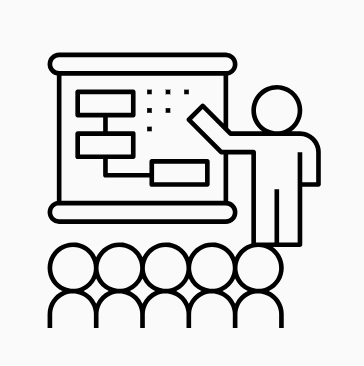

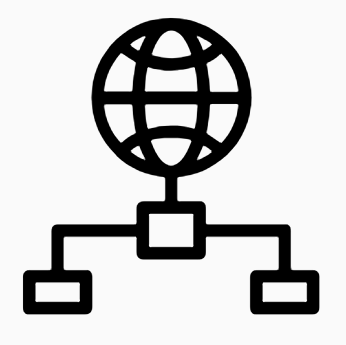

The Bertha Challenge will launch in June 2019 with the Opening Convening at one of Bertha's partnered global retreat spaces, where Bertha Fellows will:
- Meet other Bertha Fellows in the Bertha Challenge 2019 cohort, spend dedicated time getting to know one another and get the opportunity to introduce your work and perspective
- Learn about the Bertha Foundation and the Bertha team
- Find opportunities to refine the design of your project work for the year within a supportive framework
- Discuss and frame possibilities for collaboration across the cohort
- Debate current developments globally on land and housing
- Learn from practitioners about innovative ways of reaching your target audience
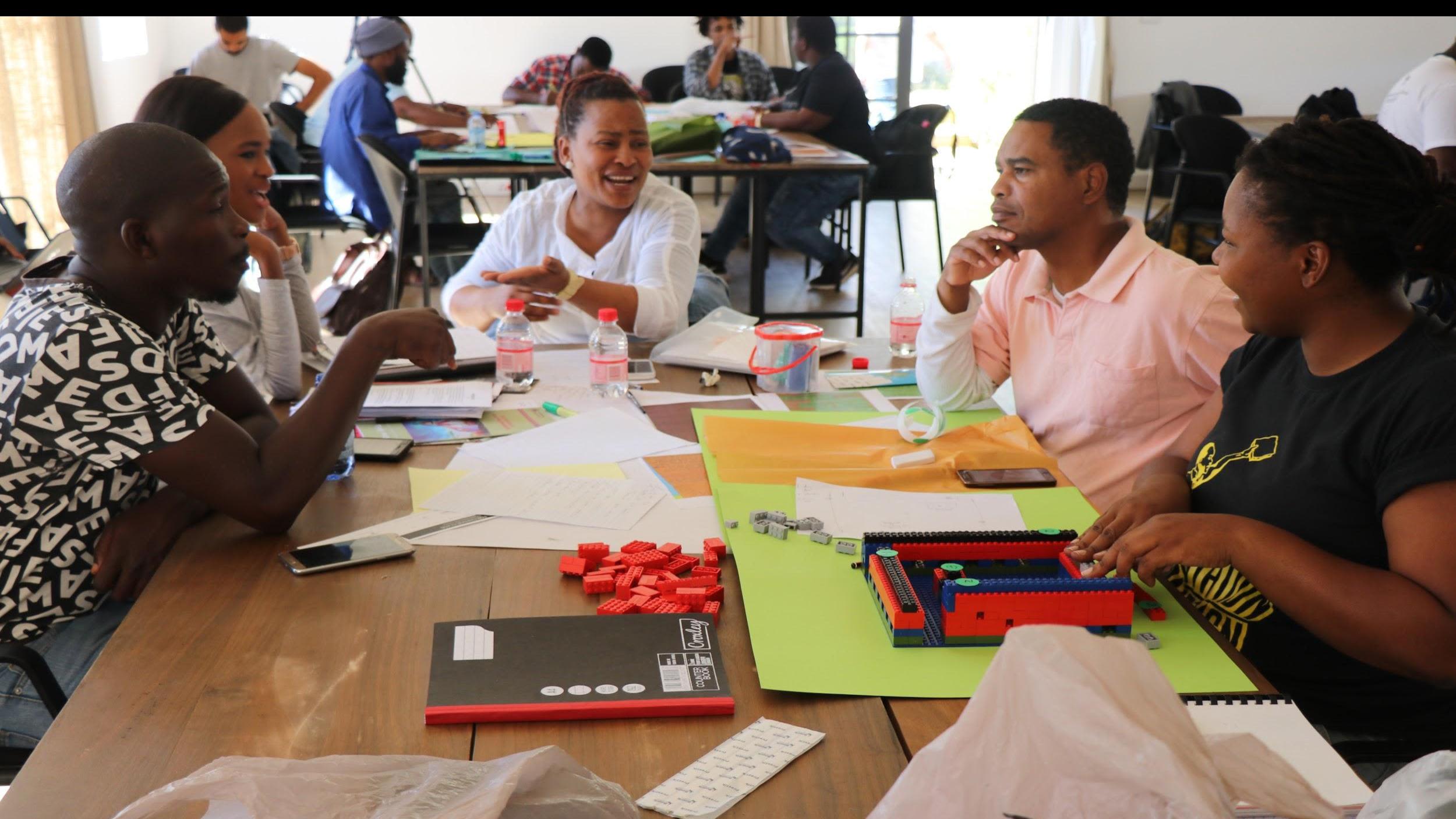
The Focus on Land & Housing
Billions of people across the world are deprived of land needed for housing, food production, public services and countless other social, cultural and personal requirements to living with security and dignity. At Bertha, we support work to advance more equitable access to land and housing because we believe it fundamentally improves lives, and also challenges the engine of the remorseless pursuit of profit and accompanying political systems that maintains injustice and inequality across societies.
Today, land is used more than any other resource to make the rich richer and the poor poorer. $217 trillion or 60% of the world’s wealth (including all stock, bonds and gold) is in urban real-estate. Investors increasingly buy land at home and abroad not to live or work on, but with the hope that its value will appreciate so it can be sold later for a profit.
"Housing has lost its social function and is seen instead as a vehicle for wealth and asset growth. It has become a financial commodity, robbed of its connection to community, dignity and the idea of home."
- Leilani Farha, UN Rapporteur on Housing
The surge in speculative investment in land, especially since the 2008 economic crash, has made the poor in cities across the world more vulnerable than ever before. The race by investors for higher profits accelerates until a “bubble” bursts, like it did a decade ago. These crises cause widespread poverty, unemployment, homelessness and political instability that affects poor, working and middle-class people in a far more devastating way than wealthy investors.
This cycle of injustice continues in part because the vast wealth held by those who profit off land almost always coexists with enormous power. This influence is exercised not only to lobby governments on what they can do with land they own, but also to lobby against progressive public policies and laws perceived to threaten current and future investment opportunities.
Increasingly government officials and public representatives find themselves either in the pockets of property power or politically curtailed. This has had grave social consequences - in both urban and rural areas.
In cities and towns, public housing is torn down to make way for exclusive development. Funding for government subsidized housing is cut. Laws that protect tenants from unfair evictions and rent increases are either ignored or policy is lacking. Well-located government (publicly) owned land - ideal for new affordable housing or other public use - is being sold off to the highest bidder.
Unregulated short-letting services (like AirBnB) reduces already limited housing supplies even further and drives up rental costs for local residents. The ease with which money can move across borders - often anonymously - allows billions of dollars to flow in and out property markets at the click of a button causing unprecedented housing market volatility.
Researchers predict that if this large-scale commodification of housing continues, cities will lose not only their history and character but also their cosmopolitanism. According to Saskia Sassen, "Such transformation has deep and significant implications for equity, democracy and rights of the poor."
In less urbanized and rural areas, land that communities have lived on for generation is taken - often illegally and without consultation - by large corporations for industrial, commercial or extractive use.
As in cities, rural land is increasingly purchased not for its productive capacity but as a commodity that can be traded later for profit. Vast tracts of farmland are being bought by overseas investors who halt food production, retrench workers and leave the land dormant to appreciate in value. In some cases this “land banking” has created regional food security crises.
Illegal evictions of indigenous communities, farmworkers, miners and other rural workers happens regularly but receives much less attention than evictions in urban areas where there is a greater civil society presence. Government officials are often complicit, ignoring or waiving regulations and protections with devastating consequences for residents, local economies and the environment.
While rural land challenges manifest differently to those in cities, many of the systemic causes are very similar. Unpacking these causes and finding solutions are at the heart of the Bertha Challenge.

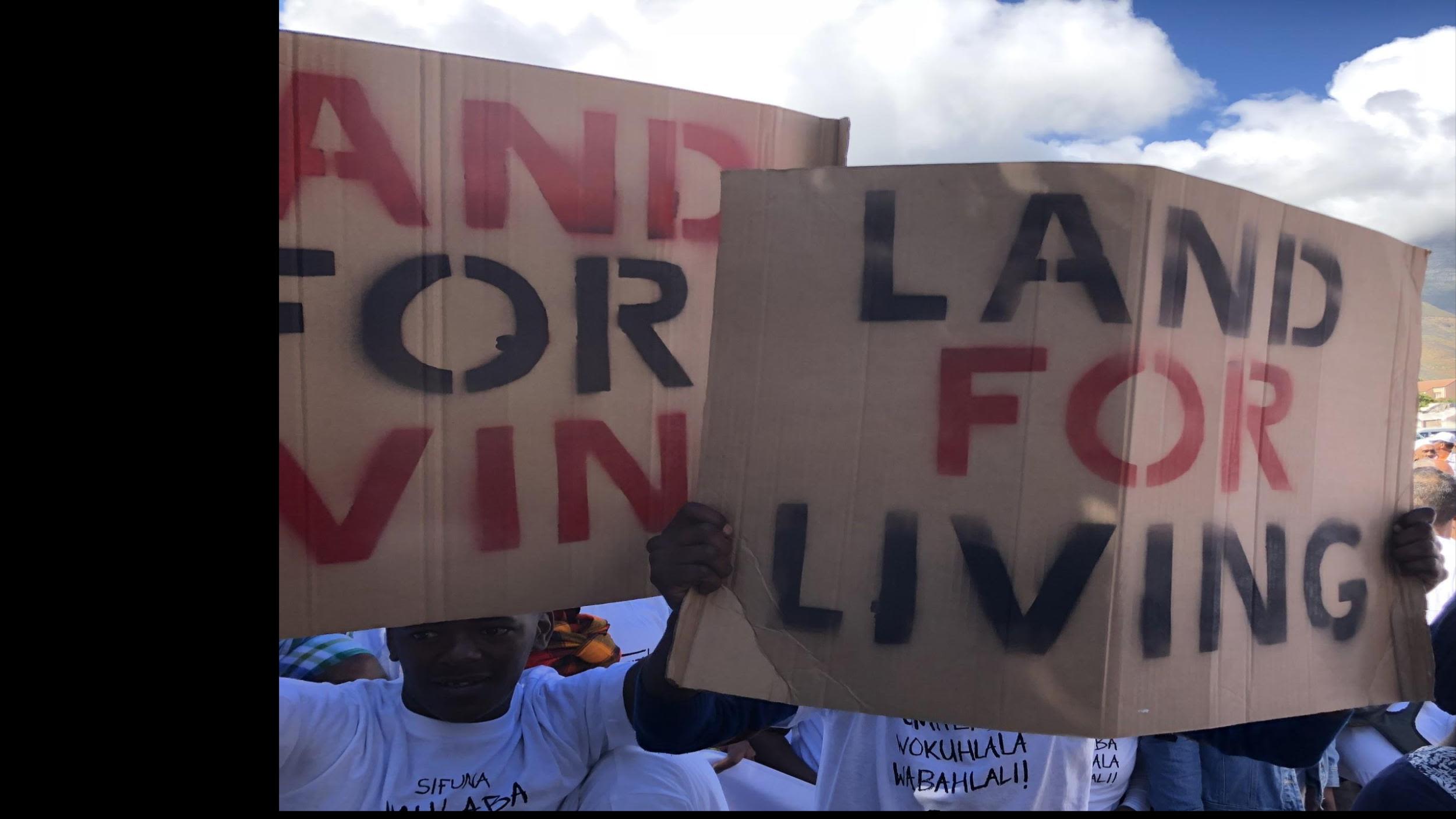
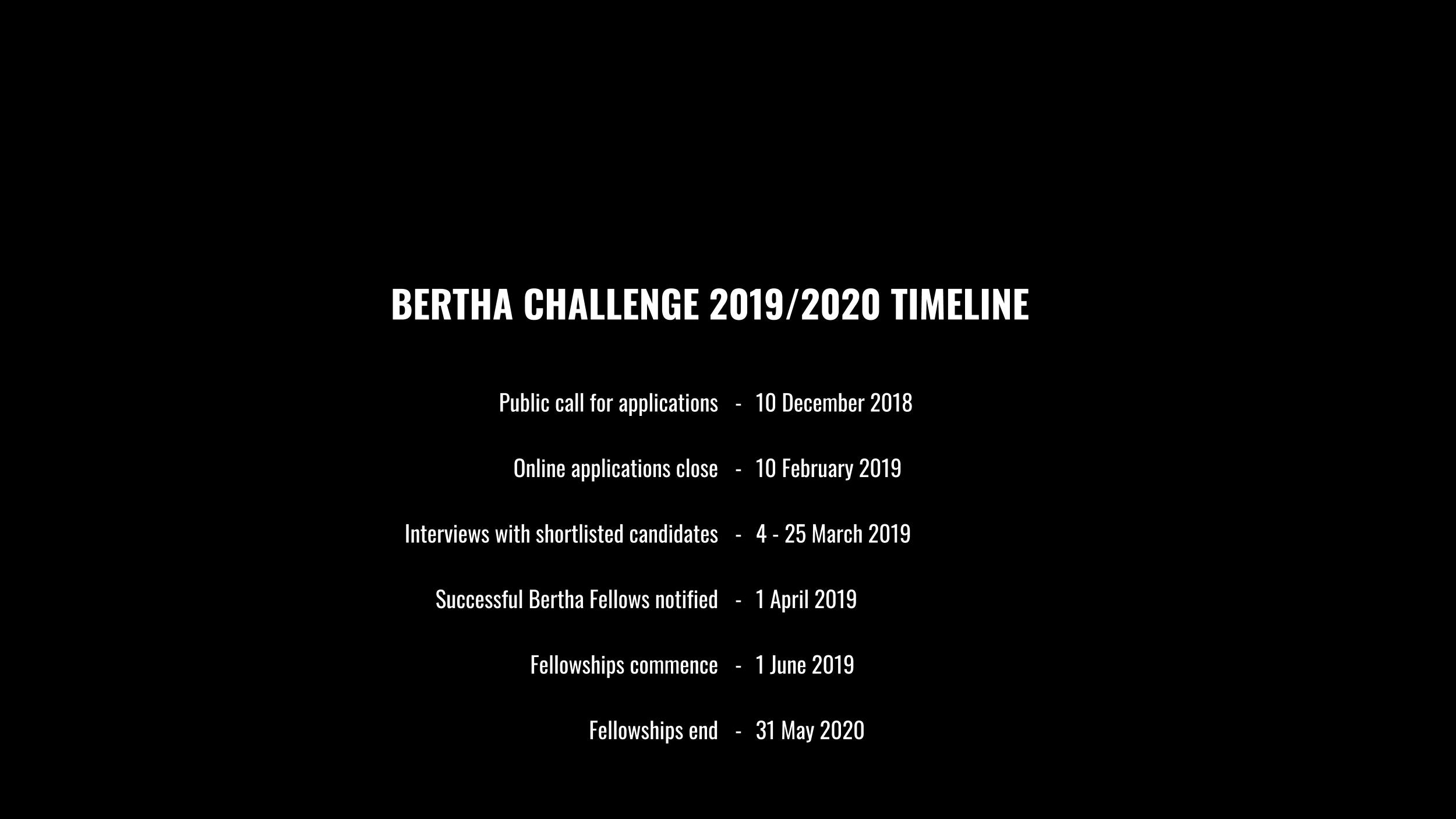
APPLYING
Deliverables
This is full-time fellowship. Bertha fellows will spend the majority of their time working in their home countries and be required to participate in:
- Two in-person global convenings at the beginning and end of the Challenge
- Regular virtual check-ins
- Monthly virtual seminars
- Local networking
Each Bertha Fellow will be required to present a product by the end of the program that responds to the Bertha Challenge.
Application Requirements
All applicants must submit:
- A completed online application form
- A brief resume/CV of no more than three pages
- A list of 2-4 referees including name, relationship to applicant and contact details
- A signed Memorandum of Understanding (MOU) from your prospective host organization - including commensurate salary and any benefits provided (find a sample template for investigative journalist applicants here and for activist applicants here)
Host Organizations
Fellowship applicants are required to secure a host organization in their home country to receive and administer the fellowship award and project funds. Host organizations must be legally structured to receive grant funding and be able to process payroll. Host organizations must share a commitment to Bertha Challenge objectives and conditions. For an investigative journalist this should be a media outlet, for an activist this should be an NGO, community organization or social movement.
The Bertha Fellow’s salary must not exceed USD $60,000 and must be commensurate with the current or equivalent salary of the applicant at the host organization. This is to avoid creating disparity at the host organization. The host organization will be expected to make arrangements regarding tax, healthcare and other benefits, the cost of which will be allocated from within the fellowship award. Bertha will make a contribution of 15% of the fellowship award to the host organization to cover administrative costs. Applicants must complete a table within the MOU to calculate the fellowship award.
Bertha Foundation will not interfere with the editorial autonomy of the host organisation during the course of the Bertha Challenge.
Time Commitment
While we understand that applicants will have some existing obligations to the movements and organizations with which they work, this fellowship will require a full-time commitment.
Important Considerations
All strategies must be non-violent. Funding may not be used for political lobbying activities. The program does not fund the enrolment for degree or non-degree study at academic institutions, including dissertation research. This must be your only fellowship or source of income for the duration of the term.
Selection Criteria
Bertha endeavours to select an inclusive and representative cohort of Bertha Fellows that celebrates diversity.
Bertha Fellows will be selected on individual merit but also on their complementary skills to the cohort, their existing and/or proposed networks and prospects for long-term impact of their work.
Applicants may come from and work in any country, but to ensure that this cohort of Bertha Fellows is able to be fully participatory, we require all applicants must be proficient in spoken and written English.

INVESTIGATIVE JOURNALISTS CRITERIA
- Mid-career journalists with at least five years experience and a track record and passion for doing investigative journalism.
- Strong connections to a diverse range of groups working in support of land and housing justice in their city, country or region including with social movements, community organizations, NGOs, academics, activists, progressive government officials, fundraisers, etc.
- Experience in working with diverse groups of people, organizations and cultures.
- Research ability, comprehensive understanding of the political landscape concerning the subject matter, understanding of the law(s) and political structures governing development and procurement and the ability to work independently.
- Affiliation to an appropriate host media organization that could publish/broadcast your work produced during the Bertha Challenge.
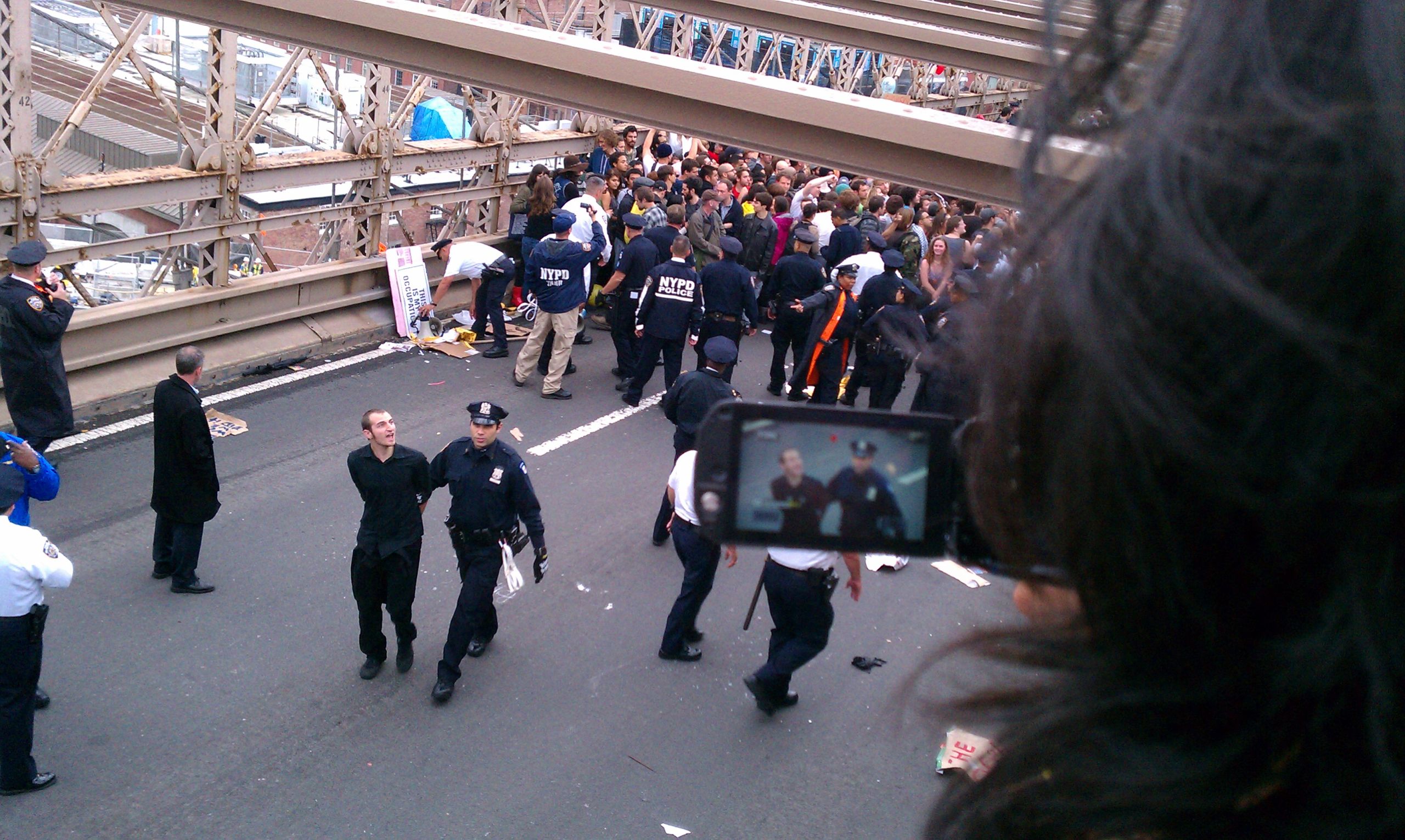
ACTIVISTS CRITERIA
- At least five years experience working with activists, social movements, grassroots and community organizing, social justice organizations or campaigns.
- Strong connections to a diverse range of groups working in support of land and housing justice in their city, country or region including with social movements, community organizations, NGOs, academics, journalists, progressive government officials, fundraisers, etc.
- Experience in developing organizing tools or popular educational programs and materials including training programs, publications, pamphlets, films, podcasts, drama productions, etc.
- Experience in using research, media and the law in advocacy.
- Affiliation to an appropriate host organization that could distribute work produced during the Bertha Challenge.
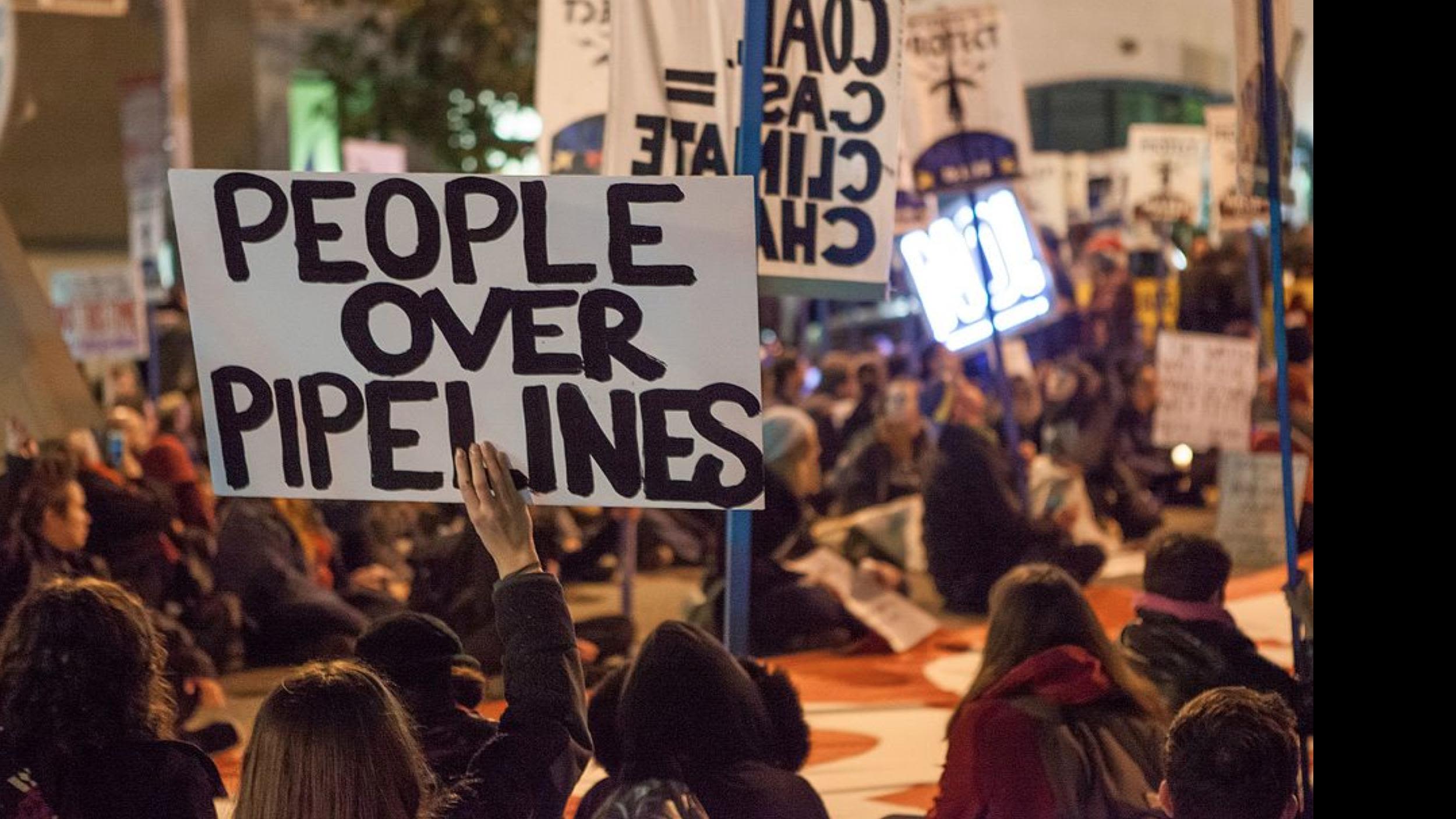
Activists
APPLY HERE
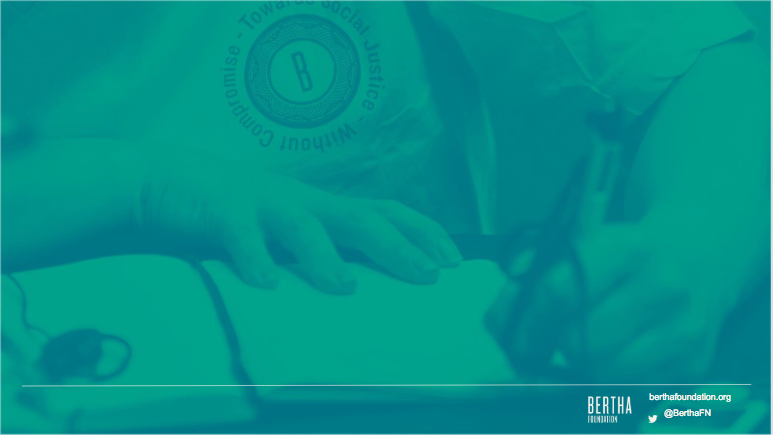
Investigative Journalists
APPLY HERE

About Bertha Foundation
Bertha Foundation supports activists, storytellers and lawyers who work to bring about social and economic justice and human rights for all.
Bertha’s approach to funding is traditionally issue agnostic - we fund those who use the tools of organizing, storytelling and law to advance human rights. To anchor a program on one specific area is a new departure for us. However, land justice is an issue close to Bertha’s heart.
We see the complexity of land ownership, particularly in areas where land dispossession and resource extraction has been rife. Bertha is fortunate to have access to retreat spaces and we have chosen to engage with the opportunity as a way of opening these rarefied spaces for sanctuary for our network and as a way to begin to develop a model for deep engagement with the local communities and histories of each site.
We take seriously our responsibility to the land and the people in these places and have created guiding principles in order to expand our notion of the possibilities and opportunities that exist within this framework. These center around: community engagement - participation, integration and negotiation; sustainability - human, financial and environmental; and ethical business practices.
With the Bertha Challenge, Bertha is ready to amplify, scale-up and accelerate our existing support for activists and investigative journalists in order to create opportunities for Bertha Fellows to serve this particular struggle. Fellows are integral to the Bertha network and we envision the ten selected activists and investigative journalists will act as bridges across regions and areas of work throughout the various phases of the program.
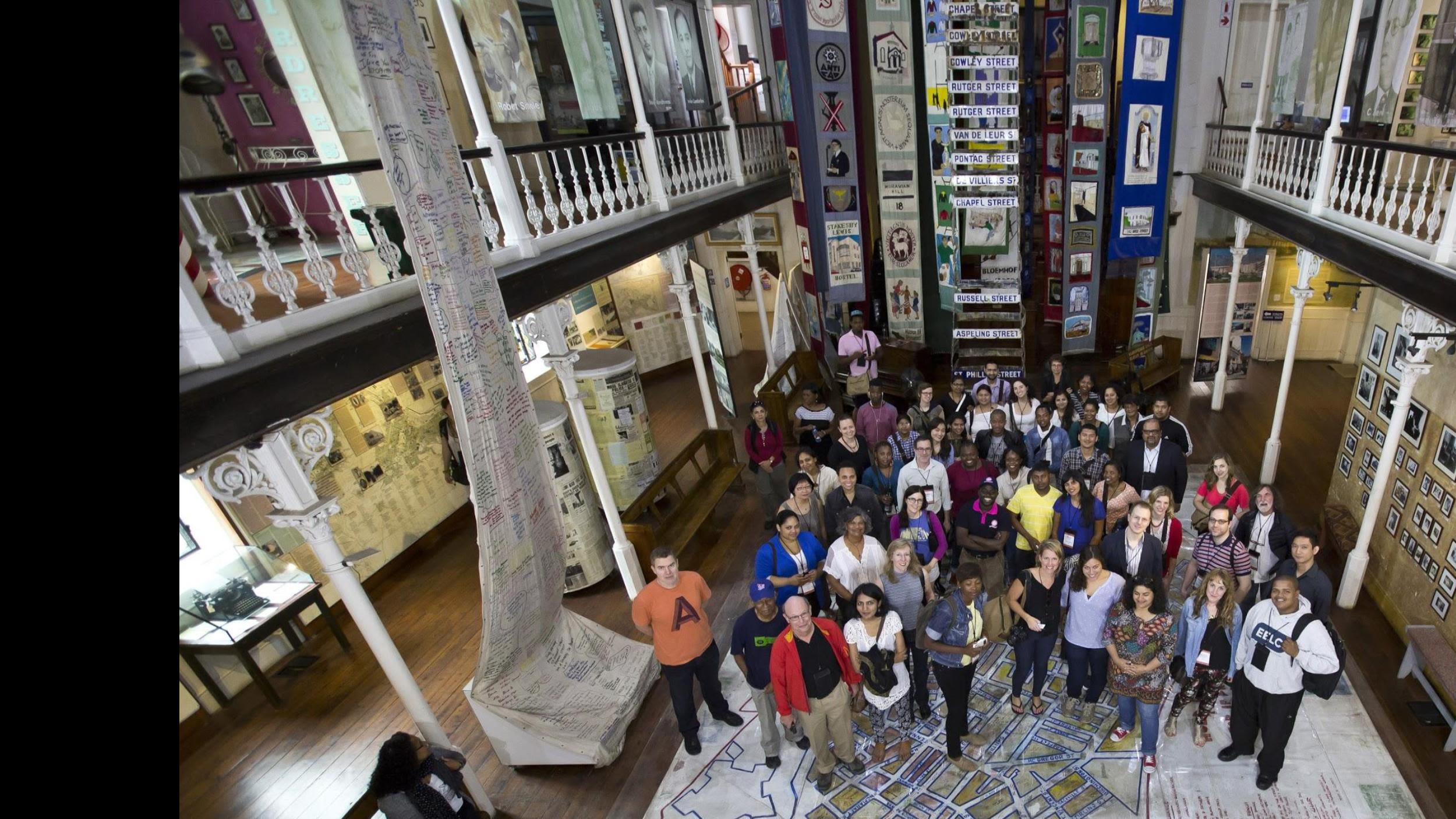
A short video about Bertha Foundation's work
A short video about Bertha Foundation's work
CONTACT US
Email berthachallenge@berthafoundation.org with any queries
www.berthafoundation.org

IMAGE CREDITS:
Why Activists & Journalists? - Courtesy of LifeMosaic
The Focus on Land & Housing page, Image 1- Benh LIEU SONG (Wikimedia) CC License
What We Offer page - Courtesy of the Tshisimani Centre for Activist Education
Activist Criteria page - Pax Ahimsa Gethen (Wikimedia) CC License
Journalist Criteria page - Nick Golotto (Flickr) CC License



 Built with Shorthand
Built with Shorthand